We’ve all been there—those bananas sitting on the counter, turning brown and mushy. Instead of tossing them into the trash or compost, why not put them to work in your garden as banana peel fertilizer? Yes, old bananas can be a secret weapon for growing healthier, happier plants! Here’s how you can transform that overripe fruit into garden gold.
Banana Peel Fertilizer: The Secret to Lush, Thriving Plants
Looking for a fun, eco-friendly way to enhance your garden? Banana peel fertilizer might be just the trick you need. It’s an all-natural, cost-free method to infuse your plants with essential nutrients—using something you’d normally toss away. The best part? There are multiple ways to use it, each with its own unique benefits for your plants.
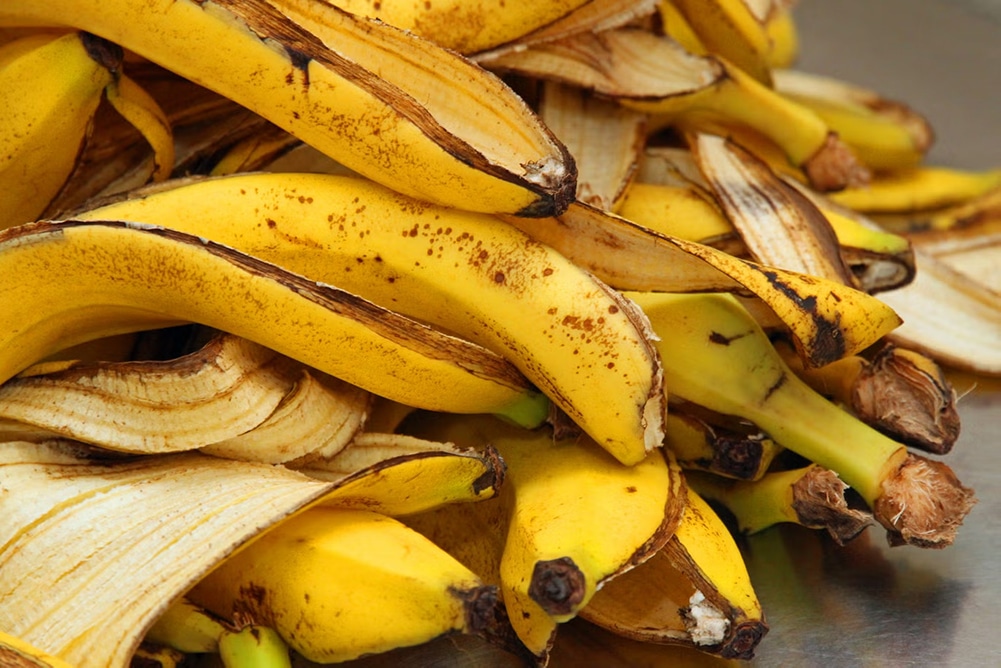
1. Banana Peels for a Nutrient Boost
Banana peels are packed with potassium, phosphorus, and calcium—nutrients that plants need to thrive. The next time you peel a banana, don’t toss it. Instead, cut the peel into small pieces and bury them around the base of your plants. This slow-release fertilizer will boost your garden’s health and help your plants grow strong roots, produce vibrant flowers, and bear more fruit.
You can also steep banana peels in water for a few days to create a nutrient-rich “banana tea” for your plants. Simply pour the tea around the roots, and watch your plants flourish!
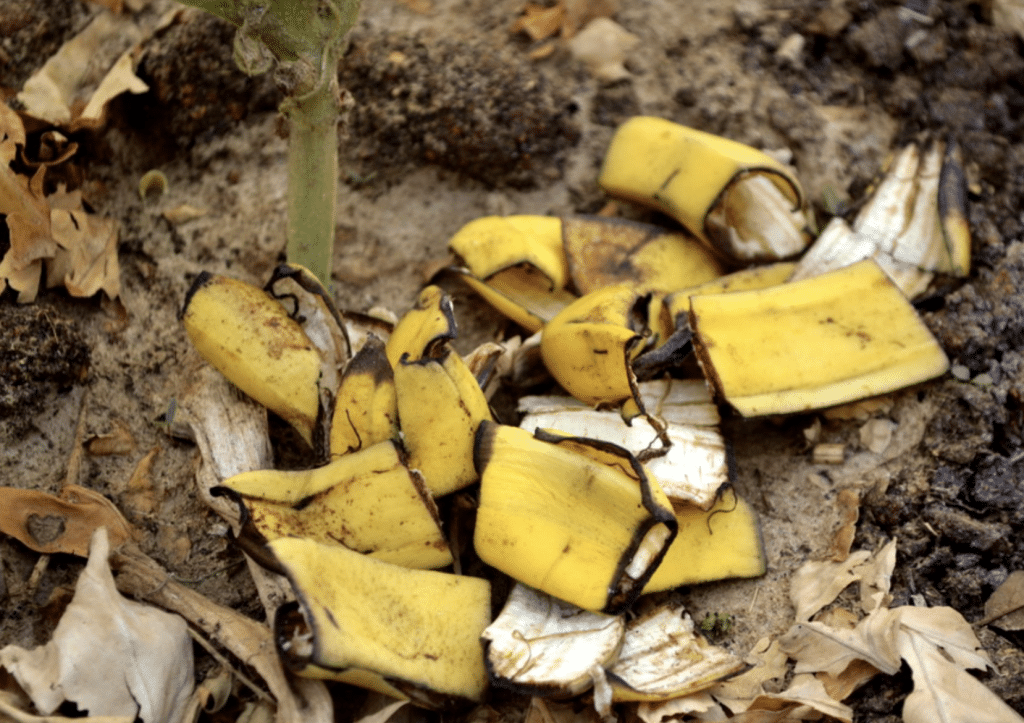
2. Banana Mash for Happy Soil
Old bananas are a fantastic addition to your soil! Simply mash a banana, peel it, and mix it into the soil around your plants. The natural sugars feed beneficial microbes, encouraging healthy soil and improving plant growth.
And if you want to stretch out your banana power over a larger surface, you can also soak it in banana water overnight. Now, all liquid inside your watering can is enhanced with banana super vitamins.
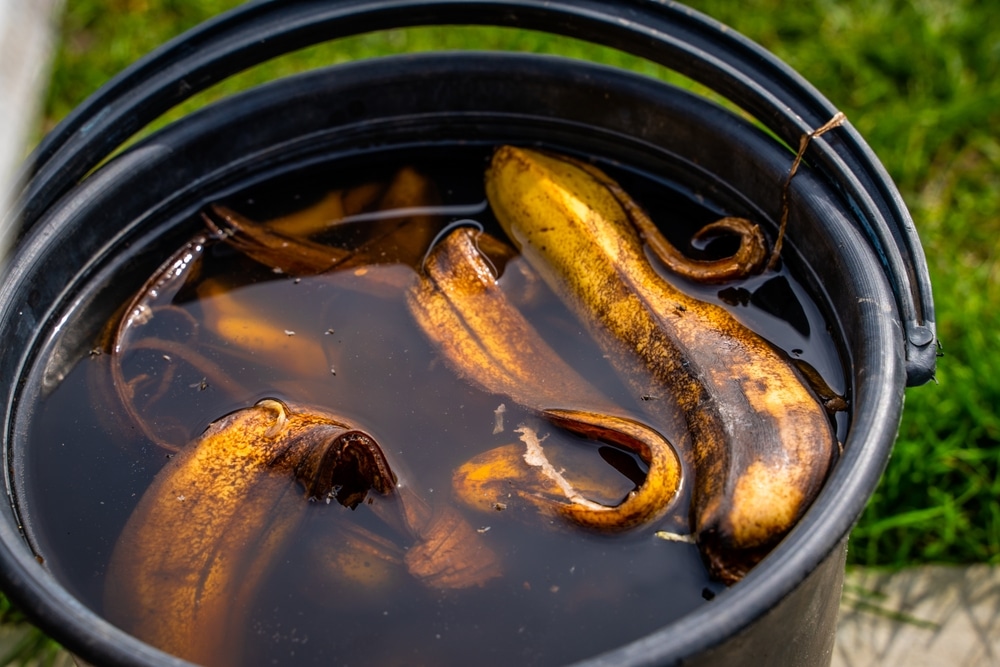
This trick works wonders for roses, tomatoes, and other flowering plants. Plus, you’ll be adding organic matter to the soil, which helps retain moisture—great for those hot summer days when your garden needs a little extra TLC.
3. Banana Peel Pest Repellent
Banana peels can also help keep pests away. Place small pieces of peel around the base of plants prone to aphid attacks. The peels act as a natural deterrent, keeping those pesky insects at bay without the need for harmful chemicals. You can also rub some peel in the leaves for extra protection.
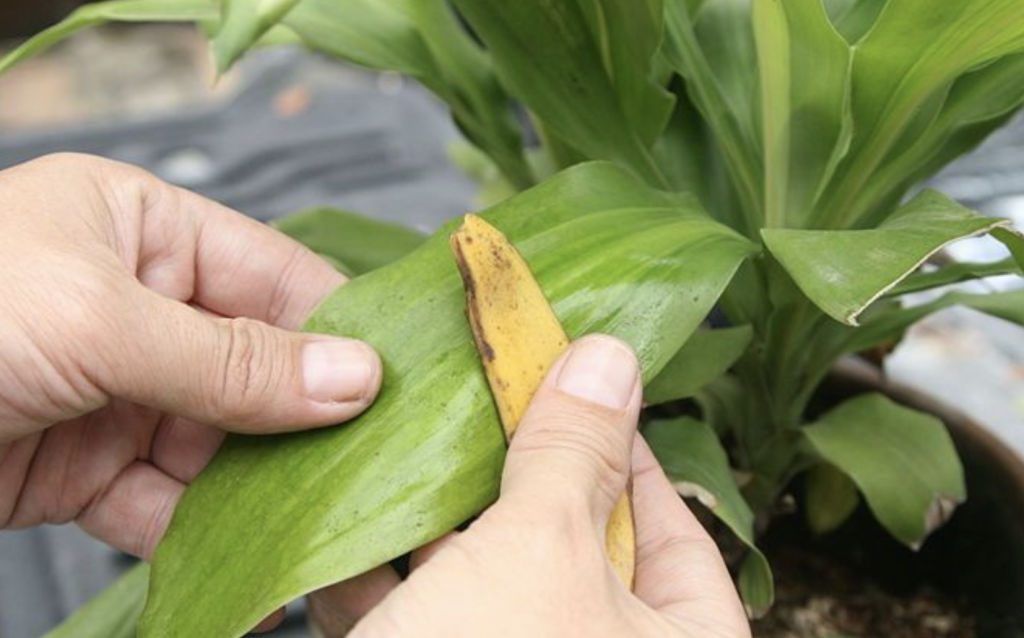
4. Banana Peel Fertilizer for Specific Plants
Certain plants thrive with a nutrient boost from banana peels. Here’s how to use banana peels effectively for specific plants:
- Roses: Roses love potassium, which promotes strong root systems and vibrant blooms. Place banana peel pieces directly into the soil around your rose bushes or use banana tea as a monthly drench to encourage lush, fragrant flowers.
- Tomatoes and Peppers: These fruit-bearing plants benefit from the phosphorus in banana peels, which supports flower production and fruit setting. Bury chopped banana peels in the soil near tomato and pepper plants to boost their productivity.
- Houseplants: For indoor plants like pothos or spider plants, banana peel water is a gentle way to nourish them. Simply water your houseplants with diluted banana peel tea to provide a subtle nutrient lift without overwhelming the soil.
- Flowering Bulbs: Plants like lilies, daffodils, and tulips can benefit from the calcium in banana peels, which helps prevent blossom-end rot. Mix crushed banana peels into the soil before planting bulbs to give them a strong start.
By tailoring your banana peel fertilizer application to specific plants, you can maximize its benefits, ensuring healthier, more productive gardens. So, the next time you find a brown banana hiding in the fruit bowl, don’t toss it. Your garden will thank you for it!
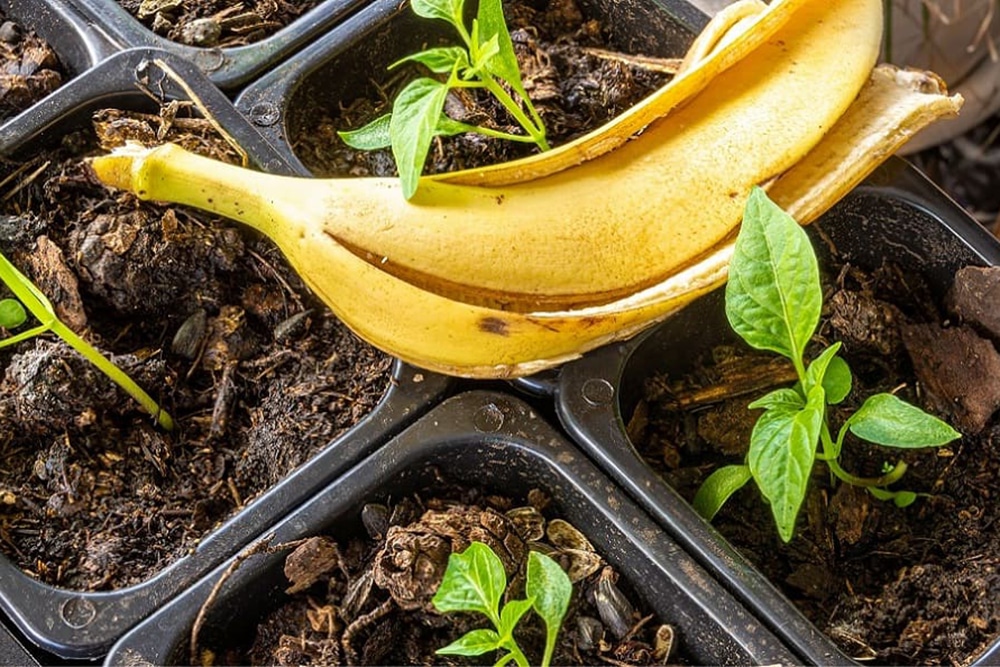
But Banana peels aren’t the only household items that can give your garden a boost! There are plenty of other simple solutions you can use. For example, used tea bags can enrich your soil or utilize baking soda to sweeten your tomatoes!
Whether you’re boosting your soil, feeding your plants, or fending off pests, old bananas are a simple, eco-friendly solution to common gardening challenges. And make sure to check out our Gardening section to find more hacks, tips & tricks!











